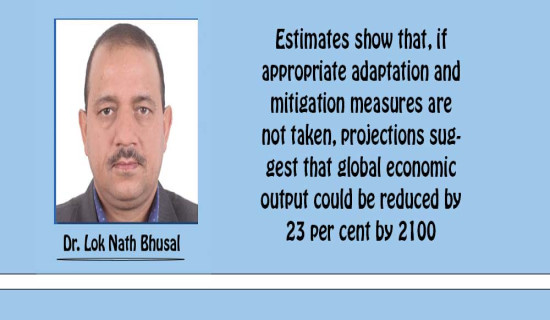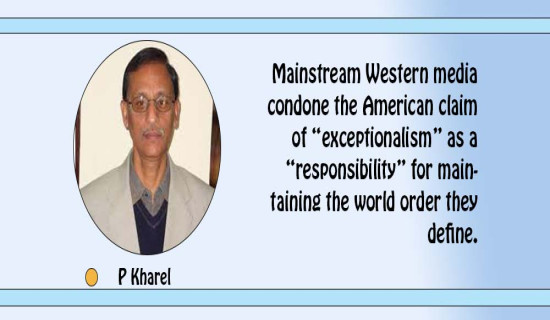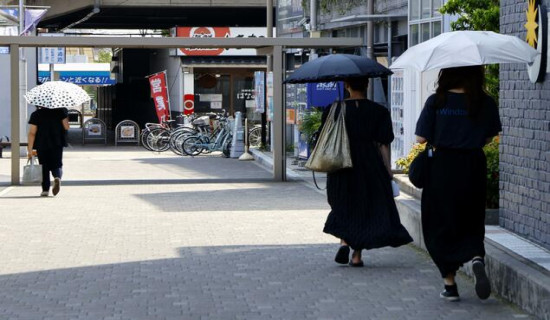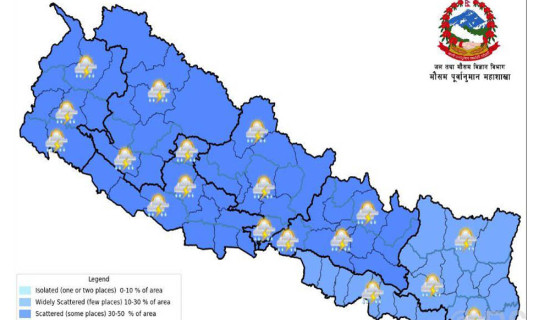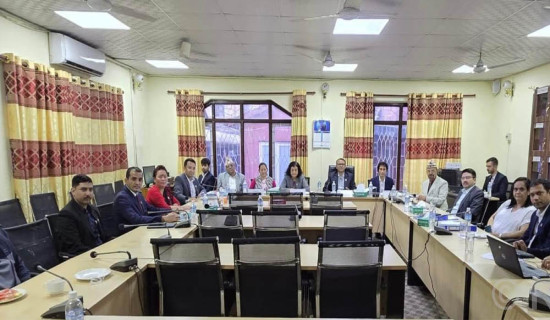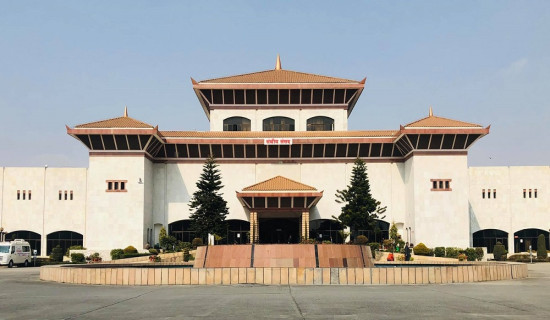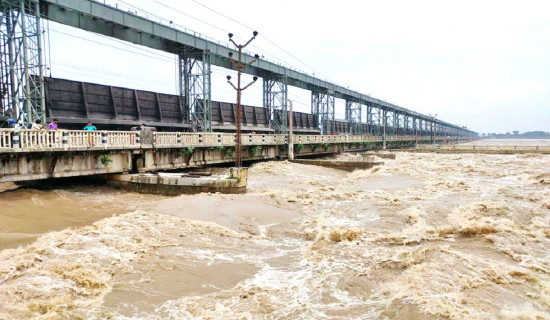- Tuesday, 5 August 2025
What Future Holds For RSP?
Pokhara's current weather is nearly perfect, with winter fast approaching. In just a month, the city will see a massive influx of tourists from around the world. However, even before winter's arrival, the city was already buzzing last week, largely due to the loyal cadres of the RSP (Rastriya Swatantra Party). They travelled to Pokhara in support of their leader, who was arrested and brought here two weeks ago on charges of cooperative fraud and organised crime. It was no surprise that RSP politicians took to the streets of Pokhara, mainly targeting the government and KP Oli in their speeches. The party's so-called "peaceful protest" had been anything but peaceful—perhaps this is just how the RSP operates.
Streets like Sahid Chowk and Rastra Bank Chowk, which usually lead calmly to Lakeside, were chaotic the whole week, making one think twice before taking this route. The district court premises remained packed with both RSP cadres and victims of the cooperative fraud. The RSP and its supporters were resolute, standing firmly behind their leader and channelling all their energy into criticizing the government. On the other hand, the victims had taken to the streets because their lifelong savings and hard-earned money are at stake, and they cannot afford to lose it. As for Rabi Lamichhane's case, time will reveal who is truly at fault. However, what’s undeniable is that the victims of the cooperative scam have suffered a significant loss. If one considers this fact, it becomes clear who really should have been protesting.
Rabi Lamichhane is not the first home minister to be taken into custody for investigation. In the past, several ministers from other political parties have peacefully cooperated with the investigation process, and when found guilty, have accepted the consequences. However, the cadres and politicians of RSP have shown unwavering faith in their leader, refusing to entertain the possibility that he could be in the wrong, even by chance. Nepal's larger political parties are often seen as being trapped in the cult of personality, and RSP's leader-centred approach mirrors this to some extent. Wouldn't it have been wiser for the party to remain silent and carry on with their work while the court determines the facts? If Rabi Lamichhane is innocent, he will surely receive a clean chit in due course.
Yet, RSP seems to be following the same path as its predecessors, overly focused on one individual. As a party, they should know better than to place too much emphasis on a single person. After all, RSP is filled with experts from various fields, and many of its members have already proven their worth as professionals. RSP is less than three years old, yet in this short span, it has gained a massive following. However, an informed citizen can’t help but question the reason behind this surge of support. Is it because RSP offers something new? Do they have unique agendas or ideologies? At present, it seems fair to say that the party’s success in attracting the masses stems largely from the public’s frustration with the older political parties. Suggesting that RSP’s rise is a benefit of the doubt wouldn’t be a statement likely to face much disagreement. For RSP to build credibility and become an exemplary party, it must approach each step with caution, acting with sensitivity and maturity.
There are numerous instances that suggest Rabi Lamichhane is a fast learner. As a journalist, he was once the loudest critic of the unstable government and shaky coalitions. Now, with political shuffles, his own party has formed alliances with more than one party, only to break them later. Lamichhane has seamlessly adapted to the Nepali political landscape, shifting his stance like a chameleon. After all, as a media figure, he was familiar with the tactics necessary to stay ahead in politics. He also seems quick to learn that one’s statements often need to shift swiftly, aligning with personal ambitions. Running a political party is far more challenging than it appears, especially in Nepal, where a certain degree of flexibility with the truth is almost required. Thanks to Lamichhane’s adaptability, he has already grasped the ingredients of Nepali politics. Some days, he's seen criticizing Prachanda, and on others, it’s KP Oli. Who’s to say he hasn’t mimicked the old players of Nepali politics?
With plenty of areas needing improvement, RSP's journey ahead is certainly not going to be smooth. If RSP wants to secure its future, it must stop elevating individuals to near-demigod status. It’s true that Lamichhane is the party chair, but hopefully, RSP is not solely about one individual. The party needs to understand that it can't rely solely on criticizing the government; this tactic won't always sway public sentiment. Eventually, people will judge them on their performance. If they fail to deliver, the public will write them off for good. And when that happens, Nepal’s ever-shifting political landscape may be ready to welcome yet another new force.



